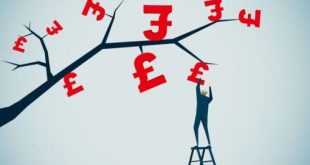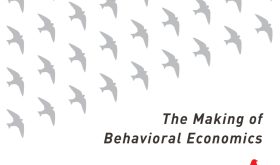Guest post by Jeff Mosenkis of Innovations for Poverty Action. I wasn’t going to even address the SNAP/Box of canned foods proposal in the news, but thankfully Paul Niehaus and Michael Faye of cash transfer fame did it well. As always, when it comes to international development, even cash advocates say that some conditions need to be right. See this conversation with Berk Ozler, Seema Jayachandran, and Andrew Zeitlin for some reminders – markets need to function well so people can get when...
Read More »The Bayesian folly
Assume you’re a Bayesian turkey and hold a nonzero probability belief in the hypothesis H that “people are nice vegetarians that do not eat turkeys and that every day I see the sun rise confirms my belief.” For every day you survive, you update your belief according to Bayes’ Rule P(H|e) = [P(e|H)P(H)]/P(e), where evidence e stands for “not being eaten” and P(e|H) = 1. Given that there do exist other hypotheses than H, P(e) is less than 1 and so P(H|e) is greater than P(H)....
Read More »Economics education — teaching cohorts after cohorts of students useless theories
Economics education — teaching cohorts after cohorts of students useless theories Nowadays there is almost no place whatsoever in economics education for courses in the history of economic thought and economic methodology. This is deeply worrying. A science that doesn’t self-reflect and asks important methodological and science-theoretical questions about the own activity, is a science in dire straits. How did we end up in this sad state? Philip Mirowski...
Read More »Ask the mountains
[embedded content] Advertisements
Read More »How central banks create money
How central banks create money Have you ever asked yourself how central banks create money? BBC Radio gives the answer. Advertisements
Read More »New Classical macroeconomists — people having their heads fuddled with nonsense
New Classical macroeconomists — people having their heads fuddled with nonsense McNees documented the radical break between the 1960s and 1970s. The question is: what are the possible responses that economists and economics can make to those events? One possible response is that of Professors Lucas and Sargent. They describe what happened in the 1970s in a very strong way with a polemical vocabulary reminiscent of Spiro Agnew. Let me quote some phrases that...
Read More »IPA’s weekly links
Guest Post by Jeff Mosenkis of Innovations for Poverty Action. Above, Tim Harfords postcard rules for reading statistics (gated), inspired by Harold Pollack’s personal finance rules index card. ER docs seem to use mental heuristics – patients are more likely to get tested for and diagnosed with a heart attack if they go right after their 40th birthday than right before (job market paper from Stephen Coussens). Dick Thaler’s Nobel Prize-winning Mental Accounting paper was originally rejected...
Read More »Economath — a device designed to fool the feebleminded
Economath — a device designed to fool the feebleminded Many American undergraduates in Economics interested in doing a Ph.D. are surprised to learn that the first year of an Econ Ph.D. feels much more like entering a Ph.D. in solving mathematical models by hand than it does with learning economics. Typically, there is very little reading or writing involved, but loads and loads of fast algebra is required. Why is it like this? The first reason is that...
Read More »The flawed premises of mainstream economic theory
The flawed premises of mainstream economic theory You know, and I know, that we do not live in a world of Econs. We live in a world of Humans. And since most economists are also human, they also know that they do not live in a world of Econs … Nevertheless, this model of economic behavior based on a population consisting only of Econs has flourished, raising economics to that pinnacle of influence on which it now rests. Critiques over the years have been...
Read More »Growth is Good?
Whenever the topic of economic growth is broached, there is a common and understandable reaction along the lines that growth is ecologically unsustainable or socially harmful. Since one of the preoccupations of this blog is demand-led growth, it is perhaps worth pausing to reflect on the appropriateness of the topic. This can be broken down into two parts. Why consider growth as such? And why emphasize the possibility that growth is demand led? Growth as Such Economic growth entails an...
Read More » Heterodox
Heterodox








